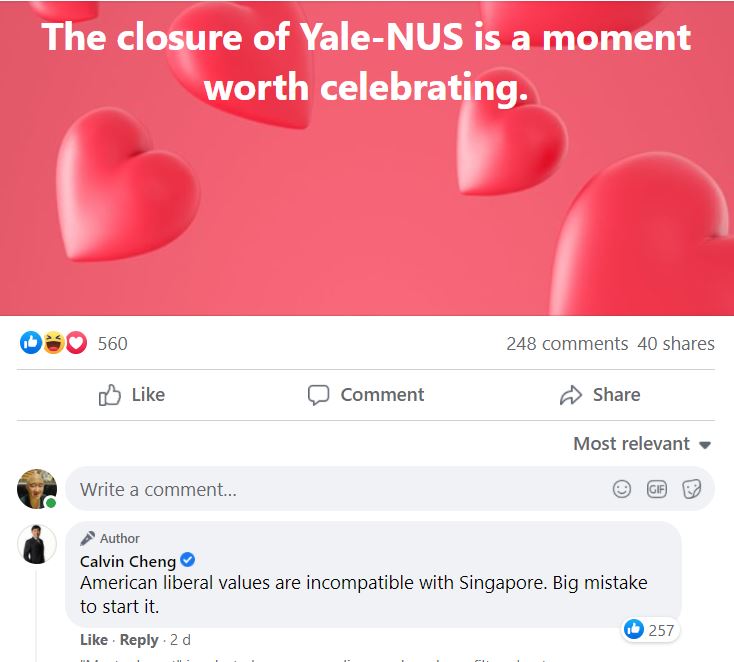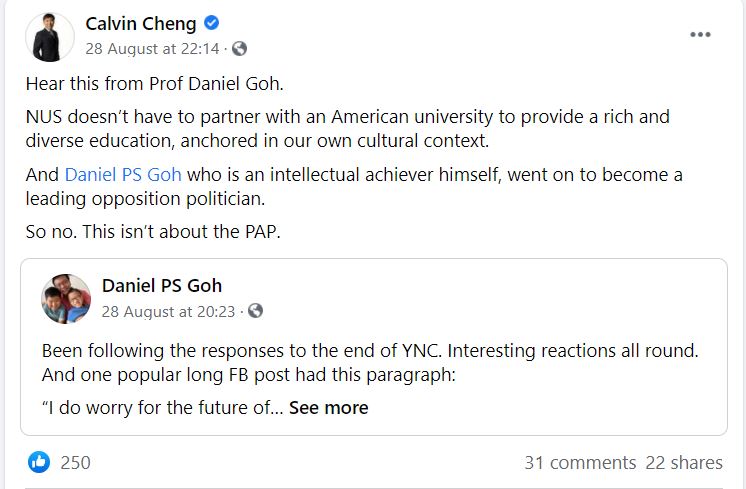By Tang Li
BeautifullyIncoherent
I know I shouldn’t indulge in stereotypes, but I was considered an oddball when I was growing up as an Asian kid in the Western world.
The reasons were simple, my strengths were in the use of language rather than in numbers and I preferred going out with people rather than studying.
Asian students were always assumed to be quiet, less social, but always hardworking. The Americans describe their Asian communities as being the “model minority.” The kids are always at school and the parents are always at work.
Singapore’s first non-Caucasian colonial administrator, Mr Lee Kuan Yew, made the most of that stereotype when seeking foreign investment from the Western world.
He was the cheerleader of “Asian Values,” which is a phrase he used to say that anyone setting up a shop in Singapore would find a population of authority-respecting (the boss is God on earth) and hardworking people (happy to work whatever hours you set).
Once again, there is some truth to that. Singapore’s school kids have to slog it out in one of the world’s more demanding education systems. Our old folks who carry the heaviest loads in fast-food outlets are probably amongst the hardest working people around.
However, as with everything related to the public image of Singapore, that’s not quite accurate. Whilst our old folks are amongst the more hardworking people around, they are also amongst the least rewarded.
Our system does not exactly encourage hard work. In fact, if you look at our system, we actually encourage the opposite of hard work. If you look at what our Prime Minister calls “Natural Aristocracy,” you will notice that sloth, particularly intellectual sloth, is a prerequisite of being part of the elite.
Take the example of the regular debate on 377A, the section of the penal code that criminalises consensual sex amongst adult men. Evidence that this is a useless law that does not do anything for society is overwhelming.
However, not a single one of our highly educated representatives have bothered to point out the obvious? Why is that?
The answer is simple. The biggest proponent of keeping this law is a legal professor who has spent a good portion of her life arguing that removing the law will effectively make the increase in the number of homosexuals.
How does our natural aristocracy respond to this scientifically challenged claim? One elected representative I used to work alongside in his day job, commented that the professor just used a lot of big words.
In hindsight this particular member of parliament was effectively saying that it was too much hard work trying to understand big words and therefore, too, trying to understand if the message made sense.
Another example of how sloth is celebrated by our natural aristocracy comes from another former nominated member of parliament, Mr Calvin Cheng.
Mr Cheng is everything that I am not. He is brainy (Oxford University), he is rich and more importantly, he has hair.
Because he has the things that I don’t have, he gets to indulge in intellectual laziness. Take his celebration of the announcement that the Yale-NUS college would be shutting down, which he posted on his Facebook page.

His only explanation was that the Yale-NUS college was a bastion of evil American liberalism, and his only evidence was the fact that there was a professor who happens to be a leading light amongst opposition voices who thought that Singapore didn’t need an American college as a partner.

Perhaps you could argue that I’m just being jealous because Mr Cheng has hair. However, it seems to be that this is one of the biggest examples of celebrating intellectual sloths.
Sure, Singapore can build a college of its own to suit its own cultural context. However, that would take time and effort that no one is prepared to invest.
Yale on the other hand has a “brand” (merely ranks amongst the best in the world) and what could be the easiest way for our National University of Singapore (NUS) to put itself on the world map than to tie up with Yale.
Then, when things don’t go as planned, close everything down and call it a bastion of values that are incompatible with the rest of society.
What else can you call this other than laziness? You don’t want to invest the time in building something on your own. Then, you decide to tie up with a foreign institution but don’t want to put in the time and effort to either see if there is cultural compatibility with the institutions or in trying to create said cultural compatibility.
You merely close it down after millions of dollars spent, without even including the person that you hired to make things happen in the discussion process.
Mr Cheng is a cheerleader of laziness. He’ll take a position and come up with a banal argument that fails to scratch the surface of the issue and expects to be treated as an intelligent person (which he actually is and there are times when he actually makes sense).
Take his posting on the supermajority of the ruling party. The crux of his argument seems to be, if the ruling party isn’t going to have a supermajority to change the constitution at will, the opposition can’t have one either.
Besides, nobody cares, so why bother. Let me repeat that this is coming from someone who graduated from Oxford (one of the world’s best) and not the ranting of a senile person.
Mr Cheng is unfortunately not the only member of the natural aristocracy who takes pride in being lazy. He’s merely the most vocal in his celebration of laziness.
Read through his rantings, and you get a good idea of why someone of our larger homegrown corporations has performed so underwhelmingly.
The man on top comes up with an idea and expects people who worship the idea because it is his. Any challenge to the said idea is considered heresy and incompatible with local culture.
When things go wrong, it’s everyone else’s fault and when a paltry solution to the surface problem is discovered, the man on top is a hero.
Why are people surprised that nobody goes out of their way to build better things in such management cultures?
I’ve argued that the problem is not that Singapore imports people from elsewhere. The problem here is that our people have been discouraged from doing the hard work of actually thinking, and people who try to think are slapped down as being Western liberals. As such, local talent leaves and goes elsewhere, and we waste talent.
Let’s remember why the teaching of liberal arts was discouraged in the first place. To do well in liberal arts, one is required to challenge established ideas, and liberal arts students spend their time debating all sorts of things.
Liberal arts don’t qualify you for anything in particular, but they train you to think of issues from a variety of angles. If you look at Mr Cheng’s celebration of the closure of Yale-NUS, it would seem that training people to think is incompatible with Singapore culture.
If Mr Cheng and his fellow members of the natural aristocracy want Singapore to succeed, they should not celebrate this and do their best to make thinking part of the local culture. /TISG
_________________________________________________________________
This article first appeared here.

